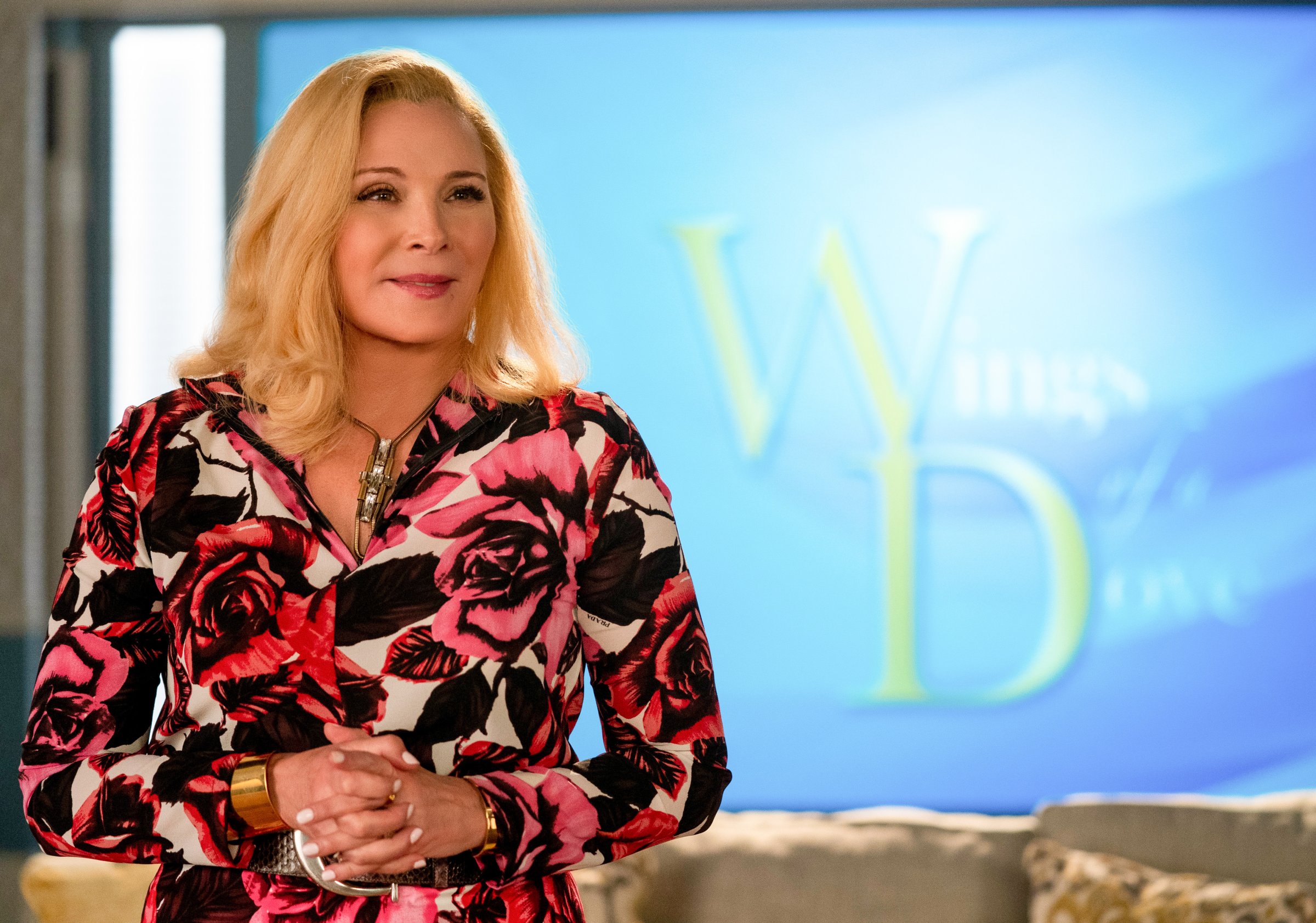
TV has been indispensable during the pandemic. In these sad and lonely times, it provides cultural enrichment, vital information (only some of which arrives distorted beyond recognition by cable-news spin), an all-important sense of connection to the world outside our respective quarantine bubbles. Let’s be honest, though: most of us aren’t bingeing BBC World News. Comfort TV is trending, Netflix subscriptions are soaring and new streaming services like HBO Max and Peacock have unlocked decades’ worth of nostalgia viewing. All that’s missing is the kind of primetime soap opera that once united the nation in some much-needed frivolity. A Dallas. A Dynasty—the original, not the CW’s mediocre reboot. Even a Desperate Housewives or a Melrose Place would do the trick.
Sadly, the past decade saw scripted soaps overshadowed by Kardashian Kontent, as an explosion of viewing options fragmented audiences to such an extent that consensus hits are now rare. But the format isn’t entirely extinct. On the heels of 2010s efforts like Revenge and Empire—both of which began as good fun but ran out of ideas after a few seasons—comes Fox’s Filthy Rich, whose Sept. 21 premiere kicks off a sparse, delayed network premiere season that will stretch into November. A smartly cast chronicle of a super-rich televangelist family in crisis, it’s executed with just the right mix of self-aware sudsiness and addictive drama.
When we meet the Monreaux clan, they’re riding high on 25 years of prosperity as founders of Christian broadcaster the Sunshine Network. With husband Eugene (a very game Gerald McRaney) beaming by her side, a hunk of fried chicken in her hands and a studio audience packed with true believers hanging on her every syrupy, Southern-accented word, matriarch Margaret (Kim Cattrall, also a producer) unveils their next venture: an ecommerce site called Sunny Club. “The time has come to start shopping in God’s light,” she announces. “We can assure you that every employee, associate and vendor will share your Christian values,” Eugene adds.
That same day, he takes off on what he claims is a business trip but is actually an excuse for the unrepentant cheater to have a Champagne-fueled private-plane tryst with two scantily clad young women. Then the aircraft starts to shake. Cut to a funeral. Eugene has left a humiliated, grieving Margaret to salvage the Monreauxes’ faith-based empire, amid reservations that his heir apparent—their callow son Eric (Corey Cott of The Good Fight), who’s wrapped around the manicured finger of his wife Becky (Dead to Me’s Olivia Macklin)—isn’t fit for the job. Daughter Rose (Battle Creek alum Aubrey Dollar) just wants her family to support her dabbling in fashion design. Meanwhile, ambitious Sunshine personality Reverend Paul Luke Thomas (Aaron Lazar from Quantico) is scheming to raise his own profile at the network.
Eugene’s will reveals three more obstacles in Margaret’s path to stability: the adult children he fathered with other women. Antonio (Benjamin Levy Aguilar) is a sweet single dad with dreams of becoming a star boxer. The enigmatic Jason (Mark L. Young of The Comeback) grows cannabis in a Colorado trailer. Most scandalous is Ginger Sweet (Tyrant star Melia Kreiling), the street-smart, unapologetic owner of an X-rated camming site called Sin Wagon. Each half-sibling is entitled to a small percentage of the company—and while the guys are easy to please, Ginger won’t accept a cent less than what she’s owed.

There’s nothing especially original about this setup. Filthy Rich was, in fact, adapted from a 2016 New Zealand series of the same name. It also shares a subject—a big, rich, competitive, hypocritical televangelist dynasty—with Danny McBride’s recent HBO comedy The Righteous Gemstones, though the two shows have very different tones. And its central dynamic, which places Cattrall’s wealthy, manipulative, beautifully preserved mama bear in eternal conflict with Kreiling’s sexy, scrappy young upstart, comes straight out of the Soap Opera 101 textbook.
But unlike Gemstones, which too often feels stuck in the Moral Majority ’80s, the show evokes a contemporary evangelical landscape riven by right-wing extremism, whose relatively moderate, well-established leaders are at least superficially concerned with inclusion. The Monreauxes’ trusted lawyer Franklin (Friday Night Lights and The Practice vet Steve Harris) and Sunshine’s stalwart director Norah (Deneen Tyler of American Crime) are Black. Margaret tries to put a happy face on her husband’s infidelity by citing Antonio, condescendingly, as an example of “the healing power of a blended family.”
There’s even something like substance at the core of her struggle with Ginger, whose livelihood—along with her mere existence—is a constant reminder of Eugene’s adultery. “God tests women like me with women like you,” Margaret tells her husband’s daughter, in a televised conversation meant to clear the air between these two very different empowered women. “Bring me my stool,” she coolly commands after Ginger has stormed offstage, signaling that it’s time for a heart-to-heart with the audience. “She’s only brought out the stool twice before: once after 9/11 and the other when the Supreme Court affirmed gay marriage,” Rose breathes. While it may not be a work of genius, Filthy Rich is sharper and funnier than it needs to be about the contradictions inherent in 21st-century feminism, the conservative Christian community and faith-based entertainment. It’s the rare network primetime drama that, in its first three episodes at least, is witty and fast-paced enough to be enjoyable. (It’s also the rare network primetime drama that isn’t about doctors, lawyers or cops.)
Chief among its pleasures is Cattrall’s performance, which complements her creamy alto with the imperious charisma of a Joan Collins or a Vanessa Williams. Although Cattrall is a more versatile actor than most American viewers know—she was excellent in a more naturalistic role in the Canadian black comedy Sensitive Skin, and has anchored acclaimed shows on London’s West End—Filthy Rich plays to strengths she demonstrated in Sex and the City. A cocktail of big personalities like Martha Stewart, Kathie Lee Gifford and the real female televangelist Marilyn Hickey, Margaret seems just as earnest in her faith as she is devoted to maintaining her family’s fortune and status—an internal struggle that makes her both believably complex and hilarious. This is a woman who, even when overcome with emotion, never forgets which camera to address. She makes a spectacularly campy entrance in the pilot’s flash-forward cold open, emerging in a red sequined halter dress and fur stole from a mansion engulfed in flames. “Rot in hell,” she drawls, addressing her curse to the burning building. Have we seen set pieces like this before? Sure. (Angela Bassett in Waiting to Exhale, for one.) But in the right manicured hands, they never get old.
More Must-Reads from TIME
- Cybersecurity Experts Are Sounding the Alarm on DOGE
- Meet the 2025 Women of the Year
- The Harsh Truth About Disability Inclusion
- Why Do More Young Adults Have Cancer?
- Colman Domingo Leads With Radical Love
- How to Get Better at Doing Things Alone
- Michelle Zauner Stares Down the Darkness
Contact us at letters@time.com